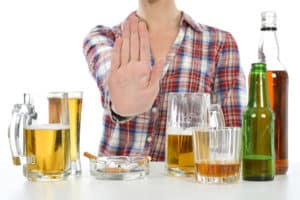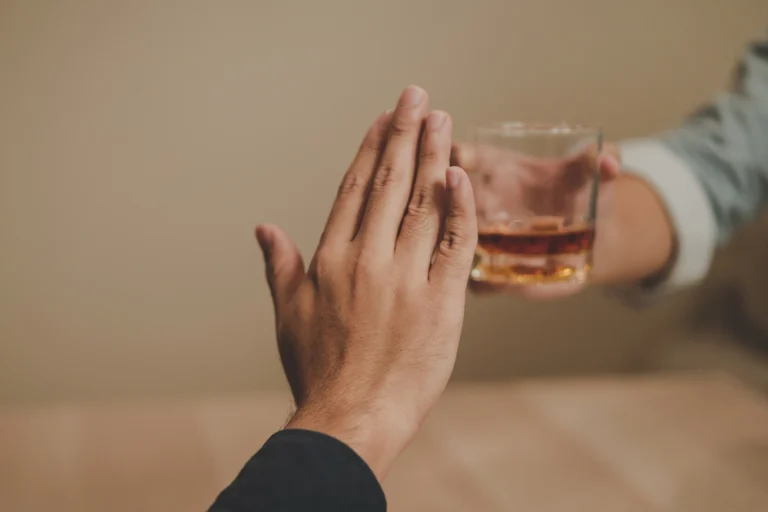Recovering from any addiction is difficult. After prolonged use of an addictive substance, the brain is irreversibly altered, resulting in occasional cravings for an individual’s drug of choice. Being legal, accessible, and the second most addictive substance in the world, the urge to drink alcohol once abstinent can be very intense and frequent. According to the Center for Health Care Evaluation, studies estimate that untreated relapse rates range from 50 to 80% or more, depending on the severity of the alcohol addiction. An even more harrowing statistic states that an estimated 95,000 people die from alcohol-related causes annually, making alcohol the third-leading preventable cause of death in the United States, according to the National Institute on Alcohol Abuse and Alcoholism.
Alcohol abuse can cause financial hardship, the deterioration of personal relationships, memory loss, various liver diseases, brain damage, or death when left untreated. Whether an individual is in recovery, self-treating, or has not yet begun practicing abstinence, applying the following coping skills can help you or a loved one combat alcohol cravings and start living a healthy, alcohol-free life.

Coping Skills to Combat Alcohol Cravings
Join a 12-Step Community
It is often recommended that individuals in the recovery phase join a 12-step community. These groups offer support, accountability, and a sense of solidarity for those who are struggling to control their cravings. A study conducted by the National Institute on Alcohol Abuse and Alcoholism states that an eight-year follow-up showed that 49% of individuals who attended a 12-step program remained abstinent.
Participate in Therapy
Therapy sessions are highly beneficial towards maintaining sobriety. Therapists can provide understanding as to the root cause of an individual’s addiction and reinforce an individual’s motivation to stay sober. With this professional help, coping strategies are developed and strengthened so that potential triggers are minimized.
Find a New Hobby
Once drinking no longer consumes time and energy, an individual may find themselves having ample free-time. In order to evade cravings in these moments, starting a new hobby can be a very effective abstinence tool. Whether it’s painting, reading, cooking, or building a garden gnome collection, let new interests replace the old.
Avoid Triggers
Once an individual begins practicing abstinence, it is important to actively avoid triggers as much as possible. Although triggers are unique to every individual, common ones include establishments where drinking took place, individuals who enable addiction or incite negative emotions, and areas where past traumas took place. By avoiding these triggers, alcohol cravings are less likely to appear.

Alcohol Addiction Treatment
Alcohol is highly addictive and life-threatening when abused; therefore, it is extremely important to seek help immediately if you or a loved one is struggling with this addiction. At Asheville Recovery Center, treatment specialists utilize a 12-step program and practice holistic rehabilitation.
Services at the center include:
Partial Hospitalization Program – At Asheville Recovery Center we offer a partial hospitalization program for clients who need post-residential treatment as well as for clients who need primary treatment but are unable to enroll in inpatient programs. Our PHP track offers a variety of therapeutic services and benefits to individuals in early recovery from substance addiction. Our day program is full-time, offering all of the clinical hours provided in residential treatment (from 9 am to 5 pm) with the benefit of allowing clients to return home to a structured sober living environment at night. This gives individuals the opportunity to build a community of peers and practice life skills, such as cooking, cleaning, and self-care, while still participating in immersive and intensive clinical addiction and trauma treatment.
Outpatient Rehabilitation – During intensive outpatient treatment, clients live at home or in a sober living residence which can help keep them accountable for their recovery commitment. Our staff coordinates with local, reputable sober living homes to ensure that our clients are living in a safe place and that their needs are being met, even when they are not at clinical sessions. During this time, clients are also encouraged to become involved in local twelve-step fellowships, to find sponsors, and to begin working the steps of recovery through participation in these groups. IOP is a place where clients can process their experiences in twelve-step fellowships and support one another in those individual journeys.
Addiction is difficult to overcome alone. If you feel that you or a loved one is struggling with alcohol abuse, our specialists are on standby and ready to help. Call (828)383-0784 and speak with an addiction expert today.






